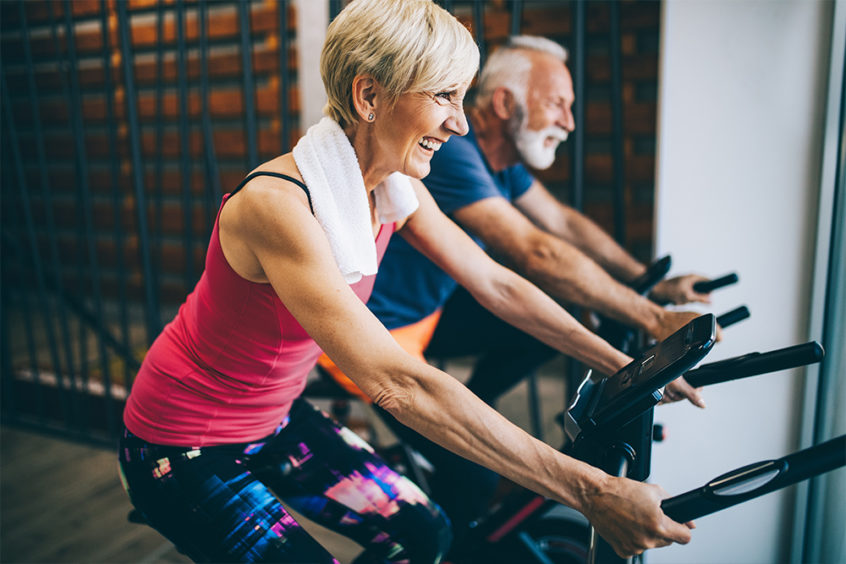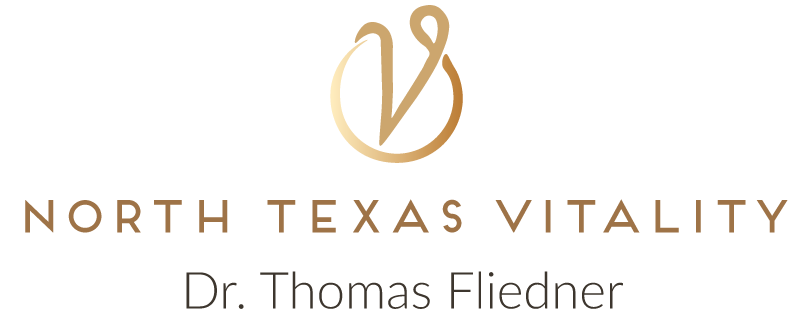Menopause Weight Gain and How to Lose It

Is it true that women must get fat as they age? We associate fat women with older women because gaining weight and becoming obese during menopause is almost a certainty.
According to the National Library of Medicine, “The incidence of obesity in the United States among women between 40 and 65 years is calculated as 65%, and among women over the age of 65 as almost 74%.”
You Don’t Have to Gain Weight!
It’s just not true that you must gain weight with age. We are here to show you why women gain weight in menopause and how practicing the steps outlined in this article will help you lose that menopause weight and keep it off for the rest of your life.
The Risks of Menopause Weight Gain
Menopause weight gain brings a host of other health risks, such as high blood pressure, heart disease, diabetes, and breast cancer among women to name a few. The extra fat at your waistline increases these risks. If you now have a waist measurement of more than 35 inches, it’s time to visit a doctor for preventative care.
Causes of Menopause Weight Gain
What is it about menopause that makes it so hard for women to maintain a healthy weight? Studies show that it is a mix of several factors such as lifestyle, aging, and hormone deficiencies that work together to cause women to gain weight during menopause. Let’s look at these factors in more detail.
Declining levels of estrogen. During perimenopause and menopause, a specific estrogen hormone called estradiol, which helps regulate metabolism and body weight, begins decreasing. The lower levels of estradiol contribute to weight gain around a woman’s hips and thighs.
Refer to our article, Perimenopause Symptoms & Treatments, to learn the difference between perimenopause and menopause and what happens to your hormone levels during these periods.
Lack of exercise. Older women are less likely to exercise. According to the CDC, “More than 60 percent of U.S. adults do not engage in the recommended amount of activity,” and “approximately 25 percent of U.S. adults are not active at all.” Both men and women aren’t active enough, and this trend of inactivity increases with age.
Loss of muscle mass. As we age, we naturally lose muscle mass, which lowers our resting metabolism, making it easier for us to gain weight. Our metabolism is the process by which our bodies turn food into energy and keep us going. As we age we need to work at maintaining a healthy metabolism.
A sluggish thyroid can also decrease your metabolism. If you are concerned about the weight gain around your midsection, we recommend you reach out to your doctor to test your thyroid.
When visiting with Dr. Fliedner, he will want to know your medical history and unusual signs you have noticed in order to recommend tests that discover what deficiencies you may have so that he can prescribe the appropriate treatment.
How to Lose that Menopause Weight Gain
- Visit your doctor. We recommend setting up an appointment with Dr. Fliedner to test your thyroid, hormone, and vitamin levels. Getting a baseline of test results will allow you and Dr. Fliedner to plan a personal health plan that may include hormone, vitamin, and mineral therapies along with a diet and exercise plan.
- Follow the doctor’s plan. Once Dr. Fliedner creates your custom plan, simply follow it. Dr. Fliedner’s prescription along with your adherence to the plan will bring the weight loss results you are desiring. The proper combination of vitamin and hormonal therapy along with a diet and exercise plan will cause your body to change in the following ways:
- Rebuild lost muscle
- Increase metabolism
- Lose weight
- Increase energy
- Sleep better at night
- Start Exercising. Exercising is the perfect complement to hormonal and vitamin therapy. If you haven’t worked out in a while and may feel uncomfortable in a gym where guys are working out, check out Curves. It’s a great place to work out with girlfriends among other women. Curves offers the cardio and strength training you need.
A well-balanced workout program includes three main aspects: cardio, strength training, and stretching.
- Cardio. Cardio is any aerobic exercise, whether you’re running or doing Zumba and burning calories. The more intense the workout, the more your body will burn calories … and lose weight!
Rev up your workout with interval training. High-intensity intervals are the key to effective exercising according to the National Library of Medicine.
You can do intervals with any type of cardio. The basic idea is to switch back and forth between higher and lower intensity. If you like to walk, try integrating short 30-second intervals of sprinting and then returning to your walking pace. If you use an indoor bike, break up the routine with short 30-second intervals of climbs, fast spinning, and slower-paced spinning. You get the idea. Check out WebMd for more tips on interval training.
- Strength training. Regular strength training can help you reduce body fat, strengthen your muscles and burn calories more efficiently. Try weight machines, hand-held weights or resistance tubing. Choose a weight or resistance level heavy enough to tire your muscles after about 12 repetitions. Gradually increase the weight or resistance level as you get stronger.
- Stretching. Stretching can help improve flexibility. Set aside time to stretch after each workout, when your muscles are warm and receptive to stretching.
- Eat right. When it comes to eating healthy, you want to select foods high in nutritional value. Fruits, vegetables, whole grains, and low-fat dairy are all good choices. You want to add protein, Omega-3 fatty acids, fiber, and calcium, and you want to avoid sugar. Read Dr. Fliedner’s article on sugar hacks to learn how sugar impacts your body.
Managing all of the aspects of a healthy weight loss plan alone is impossible. You need an experienced doctor to run tests on your body to see where you have deficiencies. He then needs to prescribe the proper hormones, vitamins, minerals, diet, and exercise to deliver the weight loss you are looking for.
You don’t have to carry around that menopause weight. Contact Dr. Fliedner today to begin losing that weight immediately. It’s not only about looks. Losing unnecessary weight will reduce the risk of other diseases and enable you to live a more active life.
